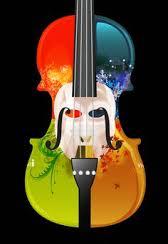Difference between revisions of "LGBTQ Classical Music Composers"
| Line 11: | Line 11: | ||
A new market niche has recently arisen for classical recording compilations targetted specifically to the high-spending LGBTQ community - selections such as 'Sensual Classics' and 'Gay Romantic Classics'. | A new market niche has recently arisen for classical recording compilations targetted specifically to the high-spending LGBTQ community - selections such as 'Sensual Classics' and 'Gay Romantic Classics'. | ||
| − | We have identified a large number of LGBTQ classical music composers hailing from Germany, Great Britain, Canada, Poland, Australia, Greece, Russia, the United States, France, and New Zealand. | + | We have identified a large number of LGBTQ classical music composers hailing from Germany, Great Britain, Canada, Italy, Poland, Australia, Greece, Russia, the United States, France, and New Zealand. |
* [[Mark Adamo]], United States | * [[Mark Adamo]], United States | ||
| Line 22: | Line 22: | ||
* [[John Cage]], United States | * [[John Cage]], United States | ||
* [[Aaron Copland]], United States | * [[Aaron Copland]], United States | ||
| + | * [[Arcangelo Corelli]], Italy | ||
* [[John Corigliano]], United States | * [[John Corigliano]], United States | ||
* [[Henry Cowell]], United States | * [[Henry Cowell]], United States | ||
Revision as of 21:22, 10 November 2014
LGBTQ classical music composers have spanned the generations. They include the early Baroque composers of Europe (such as Jean-Baptiste Lully), impressionist classicists (such as Maurice Ravel), mid-nineteen century modernists (such as Leonard Bernstein, Aaron Copland, and Baron Benjamin Britten), and contemporary composers (such as Stephen Hough, Jennifer Higdon, and Gareth Farr).
This group of LGBTQ composers have also been active in composing works for many artistic forms, such as ballet, opera, piano, string instruments, and full orchestral movements.
Interestingly, a great number of the historical LGBTQ music composers were isolated because their musical styles were innovative for their time. Often, their compositions did not display the repetitive form of their contemporaries and were more idiosyncratic in style. Reviewers and the public were often not embracing of this style, though this changed significantly with time. The classical music world is regarded as one that, historically, is inherently averse to innovation and novelty. One can make a case that this avant-garde musical style was an outward representation of the inherent personality and background of the LGBTQ composer.
Contemporary LGBTQ classical composers do not necessarily face the same restrictive professional climate. Much of the contemporary classical music genre is inherently idiosyncratic in its nature.
A new market niche has recently arisen for classical recording compilations targetted specifically to the high-spending LGBTQ community - selections such as 'Sensual Classics' and 'Gay Romantic Classics'.
We have identified a large number of LGBTQ classical music composers hailing from Germany, Great Britain, Canada, Italy, Poland, Australia, Greece, Russia, the United States, France, and New Zealand.
- Mark Adamo, United States
- H. Leslie Adams, United States
- Samuel Barber, United States
- Jean Barraque, France
- Leonard Bernstein, United States
- Paul Bowles, United States
- Baron Benjamin Britten, Great Britain
- John Cage, United States
- Aaron Copland, United States
- Arcangelo Corelli, Italy
- John Corigliano, United States
- Henry Cowell, United States
- David Diamond, United States
- Gareth Farr, New Zealand
- Wolfgang Fortner, Germany
- Percy Grainger, Australia
- Charles Griffes, United States
- Lou Harrison, United States
- Reynaldo Hahn, France
- Clement Harris, Great Britain
- Stephen Hough, Great Britain
- Hans Werner Henze, Germany
- Jennifer Higdon, United States
- Jean-Baptiste Lully, France
- Karol Maciej Szymanowski, Poland
- Colin McPhee, Canada
- Dimitri Mitropoulos, Greece
- Angela Morley, Great Britain
- Nico Muhly, United States
- Modest Mussorgsky, Russia
- Robert Odeman, Germany
- Francis Poulenc, France
- Maurice Ravel, France
- Ned Rorem, United States
- Ethel Smyth, Great Britain
- Peter Illyich Tchaikovsky, Russia
- Michael Tilson Thomas, United States
- Sir Michael Tippett, Great Britain
- Gerald Tyrwhitt-Wilson, 14th Baron Berners, Great Britain
- Claude Vivier, Canada
- Siegfried Wagner, Germany
- Earl Wild, United States

